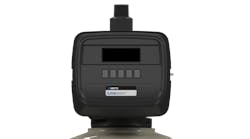Latest from Faucets
Sponsored
North American plumbing organizations tackle hands-free faucet issue
CHICAGO — Leading North American plumbing organizations came together for the first time in early June to discuss the controversy started by Johns Hopkins University on the use of hands-free faucets in hospitals. Stakeholders represented included plumbers, contractors, engineers, inspectors, code officials, standards development organizations, and manufacturers. The meeting was facilitated by the American Society of Plumbing Engineers (ASPE) and was held at the Alliance for Water Efficiency (AWE) facility in Chicago.
The key issue discussed by the group was a presentation on electronic hands-free faucets provided by Johns Hopkins University staff at a recent national conference and the subsequent media coverage. During the June 7th meeting, the participants reviewed the Johns Hopkins presentation based on the limited public information available and also heard presentations from Dr. Paul Sturman, P.E., from the Center for Biofilm Engineering at Montana State University, who spoke on biofilms; Doug Erickson from the American Society for Healthcare Engineering (ASHE), who discussed the status of a project that is surveying hospitals on their use of electronic faucet systems; and Jim Mann, executive director of the Handwashing Leadership Forum.
The following conclusions and recommended actions resulted from the meeting:
• The use of electronic faucets provides significant benefit by reducing the potential of cross-contamination from faucet handles to healthcare providers’ hands.
• Broad industry participation (manufacturers, engineers, subject-matter experts, and installers) early in any research process would enhance the research regarding accuracy and results.
• As no one in the group had seen the actual study, additional information is needed concerning the results presented by Johns Hopkins, and the group agreed that outreach should continue. Questions prepared by the group will be provided to Johns Hopkins, along with an invitation for them to participate with the group in further research and data collection.
• Full support was given to the position statement [link opens as pdf] recently published by ASHE and the Association for Professionals in Infection Control and Epidemiology (APIC).
• The ASPE Research Foundation will coordinate research projects designed to address questions raised by the Johns Hopkins presentation.
• The group will develop a separate position statement on the use of electronic faucets for future release.
• There is tremendous value in bringing together stakeholders to discuss important industry issues. While this meeting was the first of its kind, it will not be the last, as significant benefits resulted from the cross-industry communication on the issue.
“No matter what area of the plumbing community meeting attendees represented, there was one common focus from all: a commitment to providing plumbing systems that help protect public health and safety,” stated Jim Kendzel, MPH, CAE, executive director/CEO of ASPE. “It is our hope that this highly successful meeting will become a foundation for future positive, interactive dialogue among those groups directly impacting plumbing in North America.”
Organizations represented at the meeting included:
• Alliance for Water Efficiency
• American Backflow Prevention Association
• American Society of Plumbing Engineers
• ASPE Research Foundation
• Canadian Institute of Plumbing and Heating
• Canadian Standards Association
• International Association of Plumbing and Mechanical Officials
• International Code Council
• Mechanical Contractors Association of America / Plumbing Contractors of America
• NSF International
• Plumbing Contractors Association of Chicago and Cook County
• Plumbing Manufacturers International
• Plumbing-Heating-Cooling Contractors Association
• Underwriters Laboratories
ASPE is the only professional organization devoted to the training and certification of plumbing engineers and designers. ASPE and its 6,200 worldwide members are dedicated to protecting the health, welfare, and safety of the public through the dissemination of technical data and information to expand the base of knowledge among plumbing engineers, designers, contractors, code officials, inspectors, and manufacturers. Additional information is available at www.aspe.org.
Related Articles
ASPE's newest publication is 10% off through Apr. 30th

